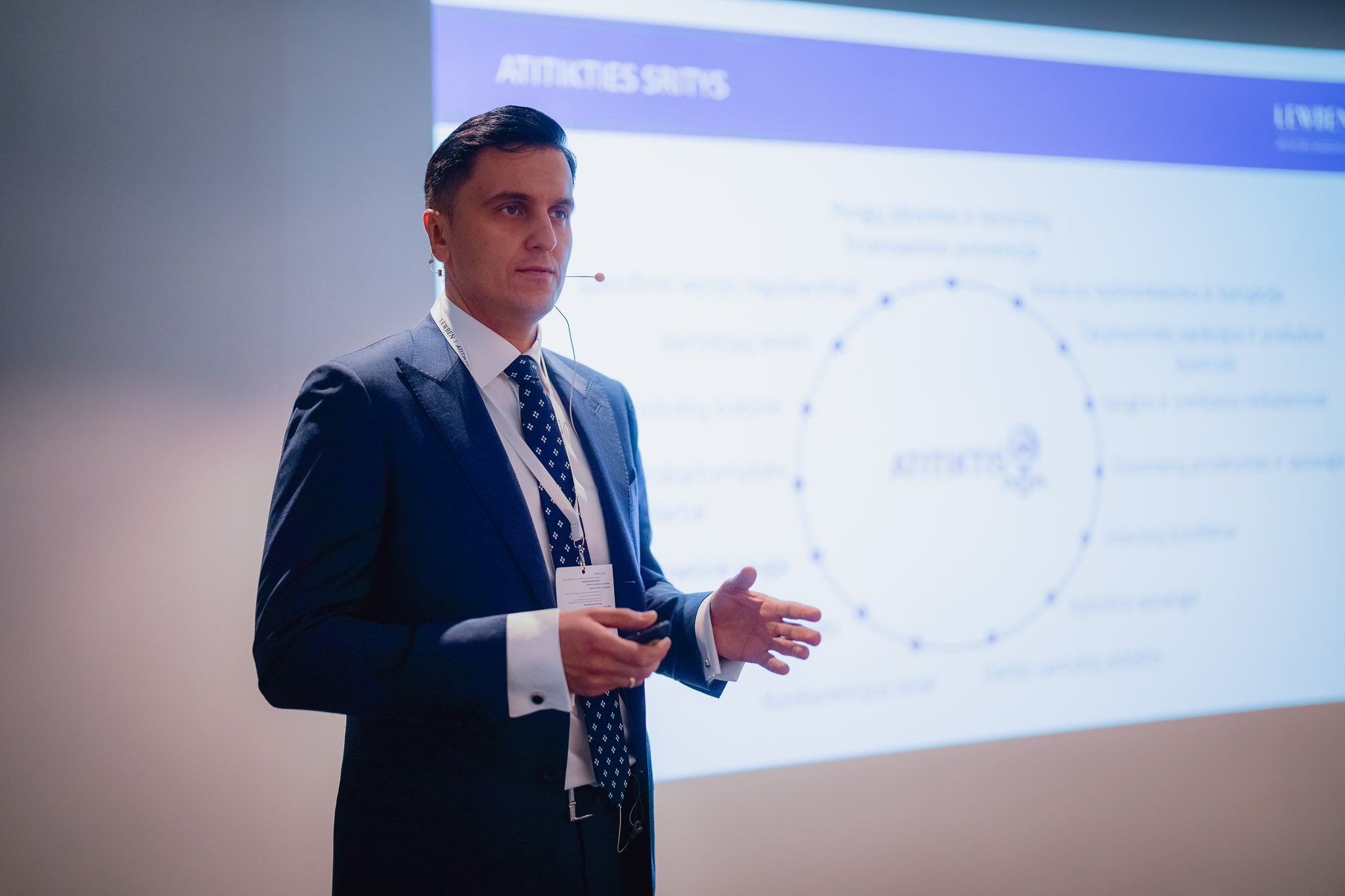Crypto Regulatory Environment in Lithuania
Disclaimer: The text below is a press release that was not written by Cryptonews.com.
Ieva Bakutienė, Licensing Services Manager at “Lewben”, and Gediminas Laucius, Legal & Tax Services Partner at “Lewben”


Lithuania has become one of the world’s first governments to react to the effect of cryptocurrencies on financial markets. Since 2018, Lithuania has provided a welcoming regulatory approach and some year and a half later – passed laws setting up a clear legal environment for virtual asset service providers (VASPs).

Lithuanian Crypto License
It is constantly emphasized that in order to commence crypto related activities in Lithuania it is mandatory to obtain a separate crypto license. However, such perception is misleading, as instead of gaining crypto license – it is necessary to notify competent authorities about crypto activity. Once notification is submitted, crypto operations can be launched. The Lithuanian Financial Crime Investigation Service (FCIS) supervises the activities of crypto wallet operators and crypto exchange service providers. The same business may apply for authorisation of both types of crypto activities and, on average, it takes less than one month to finalize the authorization process.
To be authorized to provide cryptocurrency exchange and/or wallet services, a limited liability company (UAB) must first be established in the country. The required minimum share capital is 2,500 EUR. The company formation process may be completed without a physical visit; it typically takes around ten business days to receive the needed original papers. Typical engagement begins with analysing the target business model, shareholders’ structure, background of the CEO, which allows us to produce a list of essential documents for effective incorporation process.
The Lithuanian Law on the Prevention of Money Laundering and Terrorist Financing (the AML Law) makes VASPs subject to AML requirements, including such as customer identification and authentication, transaction monitoring and suspension, reporting to authorities etc. Therefore, in order to effectively commence crypto related activities, it is recommended to have internal AML officer (preferably, a local one, to ensure that reporting to FCIS will be performed in a due manner).
A practical issue that all VASPs face is the creation of a sustainable banking relationship to ensure a seamless gateway for its customers between FIAT currencies and crypto. Lithuania is favourable jurisdiction to this end as well, as it has an ecosystem of nearly 300 fintech companies willing to offer modern and advanced financial solutions for blockchain technology-based businesses.
As crypto market evolves rapidly, aiming to gain competitive advantage, VASPs have to research for innovative, customer friendly and sustainable product offering solutions. Although crypto services are not regarded as financial services in a strict sense, it is usually the case that certain products offered by VASPs may resemble characteristics of conventional financial products (i.e., leverage trading, crypto derivative products, crypto staking, etc.), which may fall within the scope of licensed activities. A well-established financial services licensing infrastructure and a positive approach of the Bank of Lithuania entitle digital technology businesses to scale their operations by obtaining additional licenses (i.e., EMI, PI, financial brokerage) in an effective manner.
ICOs / STOs and other forms of capital raising in Lithuania
In 2017 the Bank of Lithuania introduced its approach towards virtual assets and initial coin offerings (ICOs), which was further renewed in 2019. Although the approach of the supervisory authority listed therein is rather neutral, core principles of the regulatory treatment are provided. For instance, depending on the type of the offering, ICO may either fall outside of regulatory overview or may be subject to requirements applicable to securities offering, crowdfunding, collective investment or provision of investment services. Additionally, the Bank of Lithuania published its guidelines on security token offerings (STOs), which, based on the characteristics of tokens (i.e., payment, utility, security) offered, provides a more detailed approach towards regulatory requirements. Since those guidelines are focused mostly on ICOs and STOs, it is likely that the updated guidelines will be shortly released in order to better reflect the recent developments of the crypto industry and cover new forms of capital raising (e. g. IDO, IEO, ILO, etc.).
Taxation of crypto activities
Concerning taxation, businesses should be mindful of two main taxes, specifically – corporate income tax (“CIT”) and value added tax (“VAT”). Both of these taxes may be charged under certain circumstances and the tax treatment usually depends on the form of activity. For example, revenue generated from exchange of crypto currencies and security tokens is VAT exempt, whereas other forms of activities engaged by crypto exchanges (e. g. receiving referral fee from other platforms) may be subject to taxation in some cases. Meanwhile, profits generated by VESPs are subject to 15% CIT rate with a possibility to significantly decrease the taxable amount by taking advantage of special tax incentives for software related R&D activities or investment projects. In terms of tax treatment of issuance of tokens by way of ICO / IDO / IEO / ILO, CIT obligations depend on the type of tokens issued – funds raised in exchange of: i) securities tokens are not subject to CIT, ii) utility tokens are equated to advance payments which are taxed not when the tokens are issued and the funds are collected, but when the actual service is provided by the platform in exchange to the utility tokens and iii) other forms of tokens are subject to taxation upon the receipt of the funds.
As there may be a number of variations of commercial activities, there may be lots of different taxation scenarios. Therefore, we highly recommend making a thorough tax assessment before launching operations.
Navigating the Lithuanian Regulatory Systems on Cryptocurrency
With a team that possesses crypto industry specific knowledge and strong expertise in law, tax, financial accounting, analytics and business advisory, “Lewben” can provide an extensive scope of professional services and guidance on how to best grow crypto business in Lithuania and the EU.
Disclaimer: The text above is an advertorial article that is not part of Cryptonews.com editorial content.


